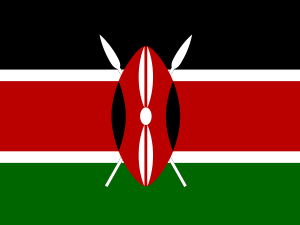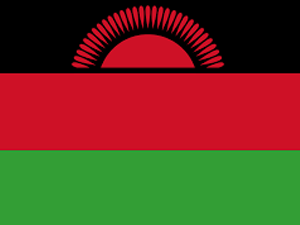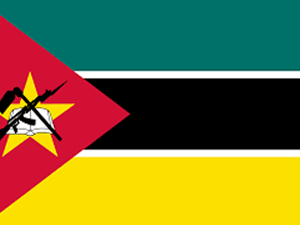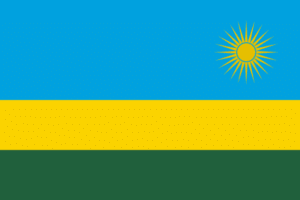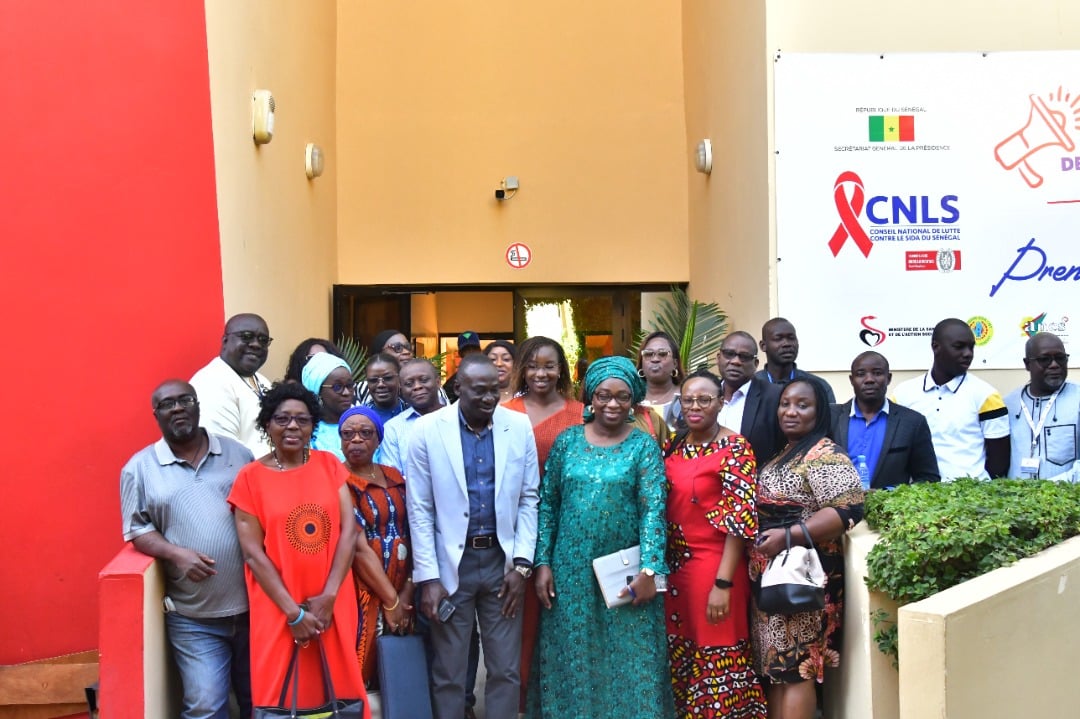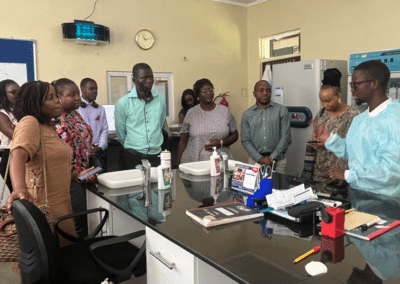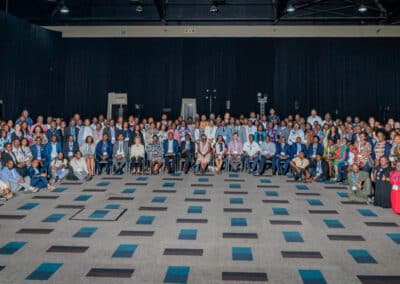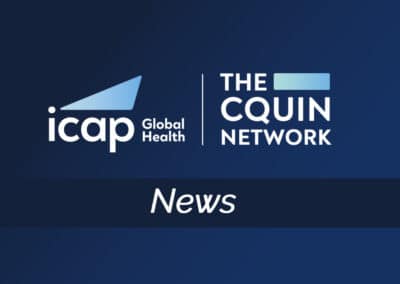From November 22- 24th, 2022, CQUIN supported the Senegal Ministry of Health and Social Action to host delegations from Cameroon and Côte d’Ivoire in a country-to-country visit. The purpose of the visit was for the two countries to learn about Senegal’s HIV/syphilis dual testing model.
The participants included the heads of the prevention of mother-to-child transmission (PMTCT) departments for both Cameroon and Côte d’Ivoire. The Ivoirian delegation also included the PMTCT Assistant, Maternal Child Health Community of Practice Technical Lead, the Head of the Screening Department, the DSD Coordinator, and the Executive Director of the National Network of People living with HIV, RIP+.
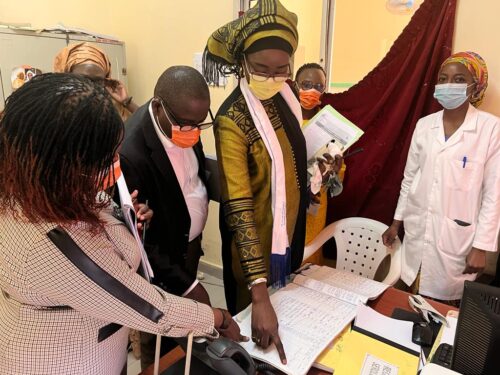
The Cameroon team also included the Director of Family Health at the Ministry of Health, the Deputy Director of HIV and STIs, and the Active and Supportive Women (AFASO) Recipient of Care Representative.
The agenda for the learning exchange included meetings with the relevant implementing bodies at the Senegal Ministry of Health and site visits to several health facilities. Participants were interested in learning about how Senegal successfully integrated and scaled up the dual testing model into its PMTCT program.
Since 2017, HIV/syphilis dual testing has been the first test for all pregnant women and a standard of care in Senegal’s PMTCT program, following World Health Organization recommendations. In the following years, dual testing coverage rose from 40 percent to 84 percent of women in antenatal care programs in Senegal, according to Ministry of Health statistics.
“We want to learn about duo test implementation at the operational level,” said Audrey Djomo, MD, head of Cameroon’s PMTCT department, in a pre-visit survey. “Cameroon plans to improve patient access to syphilis testing and treatment by developing a strategic framework, guidelines, standard operating procedures, and tools for implementing a similar model. Through this visit, we hope to understand the measures Senegal took to manage their program, especially regarding supply chain management.”
“The duo testing model would be beneficial to Côte d’Ivoire,” said Simplice Bohoussou, MD, national DSD coordinator for MOH Côte d’Ivoire after the visit. “We are even considering a triple test after this visit – HIV/syphilis and hepatitis – banding the tests together as a package will make these tests free for beneficiaries in Côte d’Ivoire.”
Both countries will recommend action plans for implementing a similar model to their national programs following the visit.









